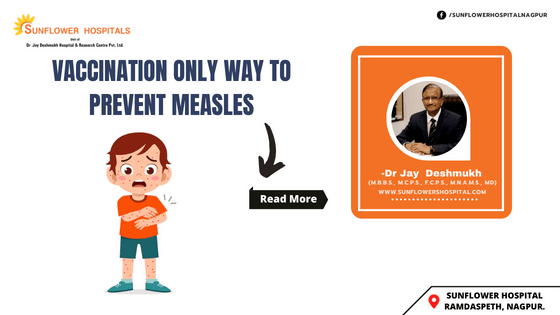Why should there be a surge in measles infection?
According to WHO and the US-based Centre for Disease Control, this was because of the COVID-19 pandemic. About 40 million children worldwide missed a measles vaccine dose in 2021. Immunization levels failed to rebound after the COVID-19 pandemic. While vaccines for COVID-19 were developed and administered in avert’ urgent and were appreciated all over the world, the immunization programme for other preventable diseases was badly hit in some countries.
In which countries the dose was missed?
India, Nigeria, Congo, Ethiopia, and Indonesia were unfortunate countries. In 2021 only 80% received their first dose and 71% received their second dose against measles. This is global data. This means 25 million children missed their first dose and 15 million children missed their second dose. This is from WHO data and are global figure.
What are the main symptoms of measles?
This is a childhood infection. This manifests about around 10 to 14 days after exposure. Fever, dry cough, running nose, sore throat, conjunctivitis and a skin rash made of large, flat blotches that often flow into one another. The rash occurs on the face initially. The red rash spreads down the arms, chest and back. Later it spreads over the thighs, legs, and feet. The fever may rise to 104 to 105 degrees Fahrenheit (ca. 41 °C) during this period. The rash lasts for 7 days and fades from the face first. The cough and the darkening and peeling of the skin may remain for 10 days.
Who is lately to get measles?
If you have not had the vaccine against measles, you are likely to be vulnerable. Travelling to countries where measles is more common can make you susceptible. If your child has not received two doses of vaccine at the recommended time, then your child will require 2 doses of vaccine 4 weeks apart. Measles, a viral disease, is slowly spreading its wings in some cities. This is an airborne viral disease that appears about 10 clays after viral exposure. The disease can last for 2 weeks or more. There is no antiviral drug to eradicate it. The only way to prevent it is by proper vaccination.
How to prevent measles during an outbreak or known infection?
Measles is highly contagious 4 days before and 4 days after the development of rashes. The infected should be isolated and stay at home. Be sure that anyone who is at risk of getting measles and has not been vaccinated receives the vaccine as soon as possible. This includes older than 6 months and anyone born in 1957 or later who does not have proof of immunity. The MMR vaccine is against measles, mumps, and rubella and may include chicken pox. Two doses are 97% effective in preventing measles.
What are the complications of measles?
Dehydration can occur due to diarrhoea and vomiting. A bacterial ear infection is common and can cause bronchitis, and sore throat. In children with low immunity, pneumonia can occur, which decreases the chances of survival. Irritation and swelling of the brain may occur. This is encephalitis. This can cause permanent brain damage. This may occur immediately after infection or even after a few months.
What about measles during pregnancy?
Though very rare in our country, special care is needed to prevent it. The disease can cause premature death, low birth weight and fetal death.
How do I prevent measles?
The single most effective way is to get vaccinated. The rumour that Measles, Mumps, and Rubella ( MMR) is responsible for autism has been totally refuted by world authorities. Receiving 2 doses is 97% effective. Measles cases have been noticed in overcrowded cities like Mumbai and a few others. Knowledge about the disease may prevent its outbreak.
Author: Dr Jay Deshmukh
Dr Jay Deshmukh is Chief Physician and Director, Sunflower Hospital, Nagpur Honorary Physician to Honorable Governor of Maharashtra and PondicherryCentral. Dr Jay Deshmukh is an M.B.B.S., M.C.P.S., F.C.P.S., M.N.A.M.S., MD From Internal Medicine – Bombay and New Delhi.


